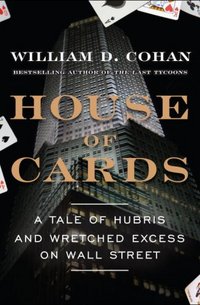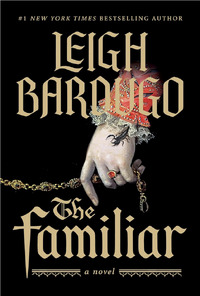

Purchase
The Shocking Demise Of Bear Stearns
Doubleday
May 2009
On Sale: April 21, 2009
320 pages
ISBN: 0385528264
EAN: 9780385528269
Hardcover
Add to Wish List
Non-Fiction
On March 5, 2008, at 10:15 A.M., a hedge fund manager in
Florida wrote a post on his investing advice Web site that
included a startling statement about Bear Stearns & Co., the
nation’s fifth-largest investment bank: “In my book, they
are insolvent.” This seemed a bold and risky statement. Bear Stearns was
about to announce profits of $115 million for the first
quarter of 2008, had $17.3 billion in cash on hand, and, as
the company incessantly boasted, had been a colossally
profitable enterprise in the eighty-five years since its
founding. Ten days later, Bear Stearns no longer existed, and the
calamitous financial meltdown of 2008 had begun. How this happened – and why – is the subject of William D.
Cohan’s superb and shocking narrative that chronicles the
fall of Bear Stearns and the end of the Second Gilded Age on
Wall Street. Bear Stearns serves as the Rosetta Stone to
explain how a combination of risky bets, corporate political
infighting, lax government regulations and truly bad
decision-making wrought havoc on the world financial system. Cohan’s minute-by-minute account of those ten days in March
makes for breathless reading, as the bankers at Bear Stearns
struggled to contain the cascading series of events that
would doom the firm, and as Treasury Secretary Henry
Paulson, New York Federal Reserve Bank President Tim
Geithner, and Fed Chairman Ben Bernanke began to realize the
dire consequences for the world economy should the company
go bankrupt. But HOUSE OF CARDS does more than recount the
incredible panic of the first stages of the financial
meltdown. William D. Cohan beautifully demonstrates why the
seemingly invincible Wall Street money machine came crashing
down. He chronicles the swashbuckling corporate culture of
Bear Stearns, the strangely crucial role competitive bridge
played in the company’s fortunes, the brutal internecine
battles for power, and the deadly combination of greed and
inattention that helps to explain why the company’s leaders
ignored the danger lurking in Bear’s huge positions in
mortgage-backed securities. The author deftly portrays larger-than-life personalities
like Ace Greenberg, Bear Stearns’ miserly, take-no-prisoners
chairman whose memos about re-using paper clips were
legendary throughout Wall Street; his profane, colorful
rival and eventual heir Jimmy Cayne, whose
world-champion-level bridge skills were a lever in his
corporate rise and became a symbol of the reasons for the
firm’s demise; and Jamie Dimon, the blunt-talking CEO of
JPMorgan Chase, who won the astonishing endgame of the saga
(the Bear Stearns headquarters alone were worth more than JP
Morgan paid for the whole company). Cohan’s explanation of
seemingly arcane subjects like credit default swaps and
fixed- income securities is masterful and crystal clear, but
it is the high-end dish and powerful narrative drive that
makes HOUSE OF CARDS an irresistible read on a par with
classics such as LIAR’S POKER and BARBARIANS AT THE GATE. Written with the novelistic verve and insider knowledge that
made THE LAST TYCOONS a bestseller and a prize-winner, HOUSE
OF CARDS is a chilling cautionary tale about greed,
arrogance, and stupidity in the financial world, and the
consequences for all of us.
Comments
No comments posted.
Registered users may leave comments.
Log in or register now!
| 


 © 2003-2024 off-the-edge.net
all rights reserved Privacy Policy
© 2003-2024 off-the-edge.net
all rights reserved Privacy Policy